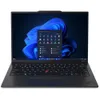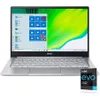Leaked Dell memo may spell trouble for Intel in competition with Qualcomm
Internal Dell documents show up to 98 percent battery life increase on the XPS laptop when Qualcomm's Snapdragon X is running instead Intel Alder Lake Intel chips.
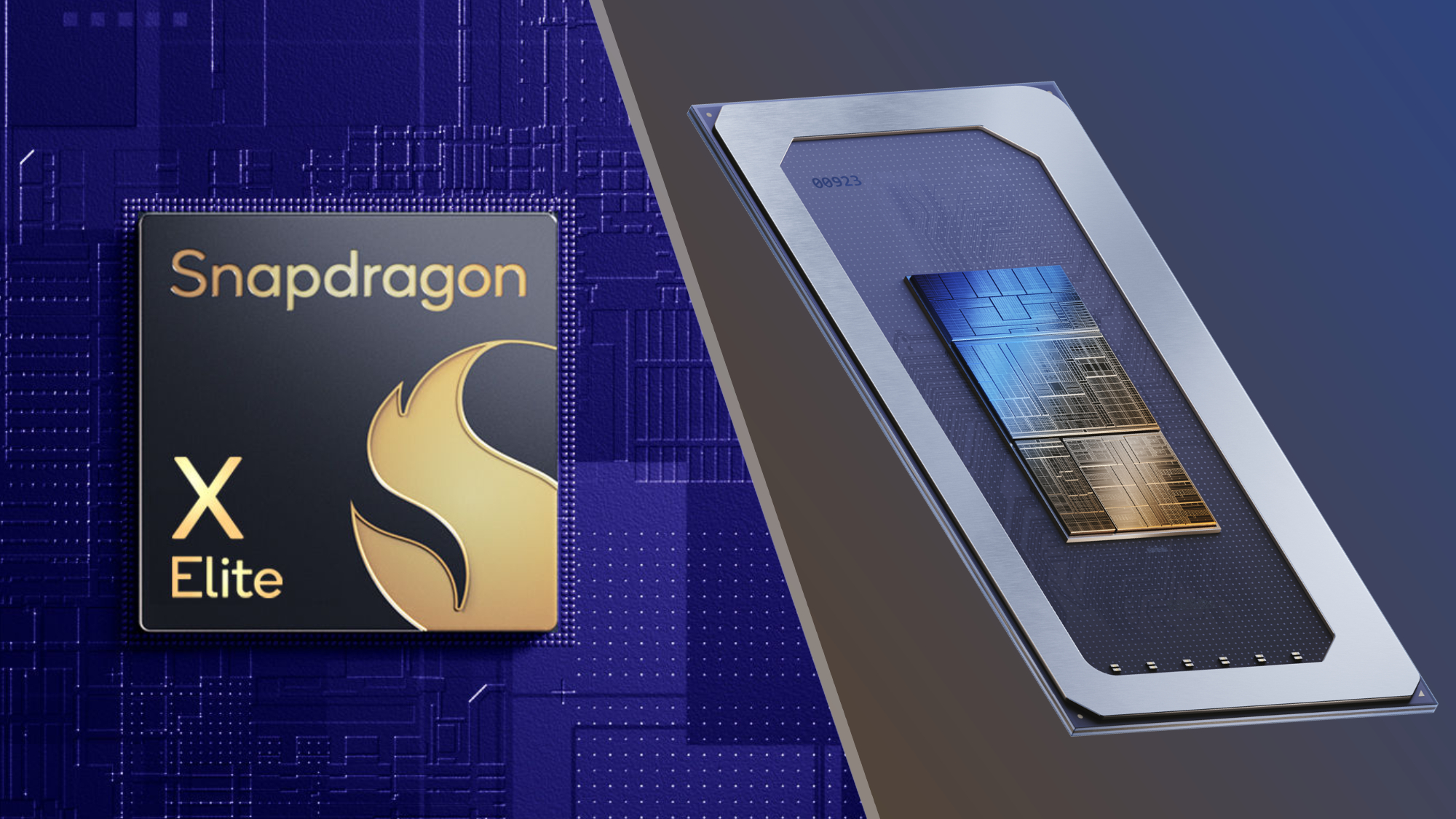
Sign up to receive The Snapshot, a free special dispatch from Laptop Mag, in your inbox.
You are now subscribed
Your newsletter sign-up was successful
Dell documents leaked by VideoCardz on Monday suggest that Qualcomm's Snapdragon X could crush Intel and AMD competition in battery life during video playback.
These leaks revolve around the Dell XPS 13 line, with internal information claiming battery life increases between Intel Alder Lake and Qualcomm Snapdragon X processors by 68 to 98 percent.
More details from the documents reveal:
QHD+ panels see Intel Alder Lake lasting 11 hours during local video playback, whereas Qualcomm Snapdragon X hits nearly 22 hours. In OLED panels, Intel's battery life of 10 hours is far below Qualcomm's 17 hours.
Netflix streaming on the QHD+ panel had Intel at 9 hours, while Qualcomm is around 17 hours. On the OLED panel, Intel's 7 hours and 30 minutes again can't compete with Qualcomm's 11 hours and 30 minutes.
It's important to remember that these tests are performed against Intel's last-generation processor, as Intel's Meteor Lake similarly improved battery life when compared to that generation.
Qualcomm's official website claims that Snapdragon X laptops can last up to 25 hours of continuous use. Its learn more page also corroborates it having up to 20 hours of continuous video playback.
Sign up to receive The Snapshot, a free special dispatch from Laptop Mag, in your inbox.
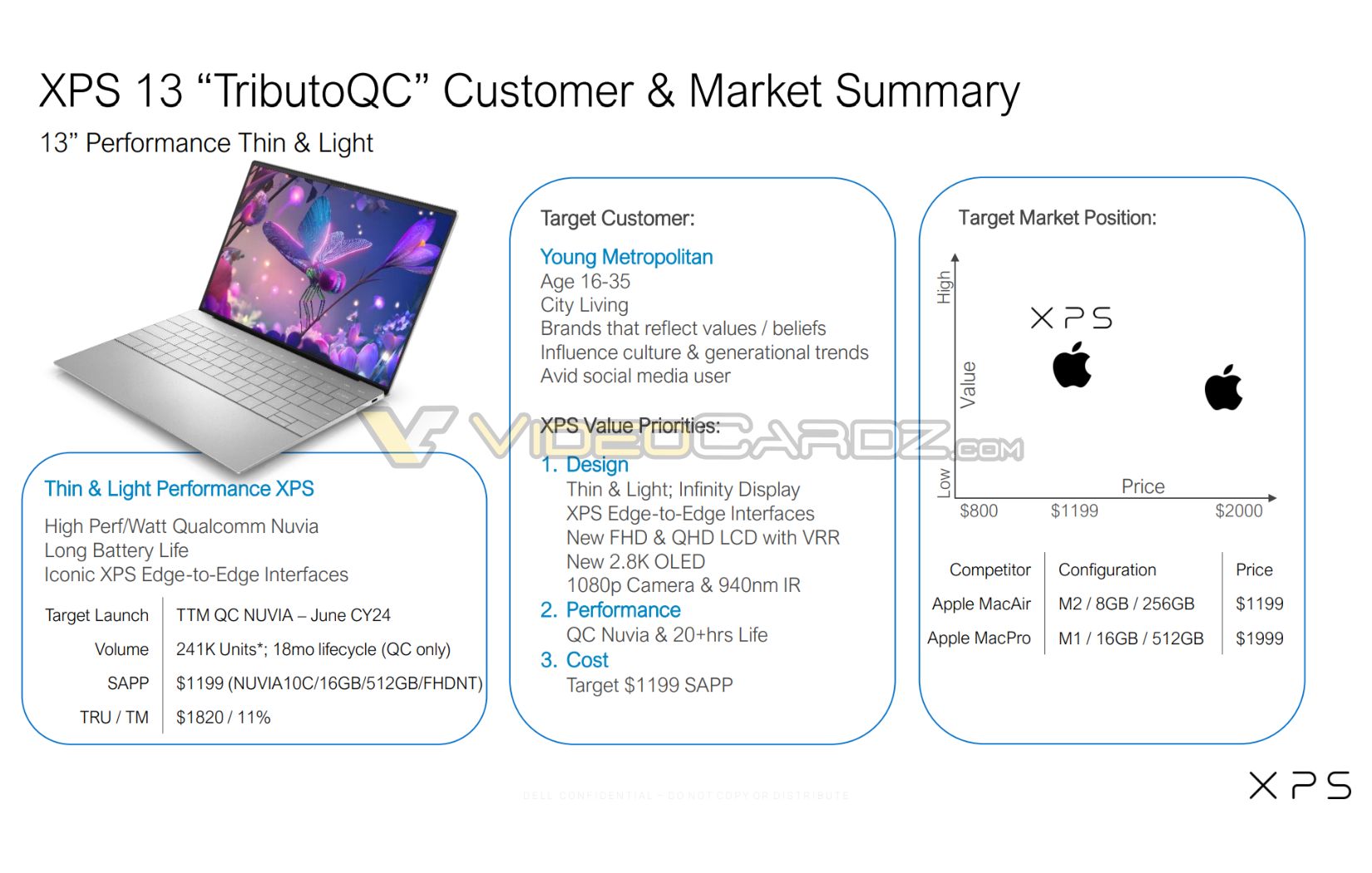
These same leaked documents offer insight into the cost of manufacturing Intel versus Qualcomm processors. Last year's Intel Core i7-1360P cost $293 to manufacture, while the Snapdragon X is estimated to cost $145. It's also predicted that the newest XPS 13 will cost $1,199 with 16GB of RAM, 512GB of SSD storage, and an FHD screen.
In comparison, the last generation Dell XPS 13 Plus had the same RAM, storage, and display resolution but was built with the Intel Core i7-1360P and cost $1,249.
Dell is pushing to compete with Apple by having the target market position for XPS to be higher value at the same price as Apple MacBook Air, as seen on a graph in leaked XPS internal images.
Apple MacBooks are famous for their long-lasting battery life, so for Qualcomm and XPS to solidify themselves as strong competitors, these numbers need to hold true in real testing. But it's also not surprising to see Qualcomm push so far ahead of Intel in battery life.
Why Qualcomm's superior battery life isn't a surprise
It's not surprising to see Intel so effortlessly squashed in battery life when compared to alternatives. We've been seeing this exact situation in Chromebooks for years. The longest-lasting Chromebook we've reviewed is the Acer Chromebook 514, which uses a MediaTek processor. It came in at 14 hours and 8 minutes in the Laptop Mag battery test, which involves continuous web surfing over Wi-Fi at 150 nits.
Our second longest-lasting Chromebook, the Lenovo Duet 5 Chromebook, uses a Qualcomm Snapdragon and comes in at 13 hours and 31 minutes. It's not until the Acer Chromebook Spin 713 that we see an Intel-powered Chromebook hit 11 hours and 54 minutes of longevity.
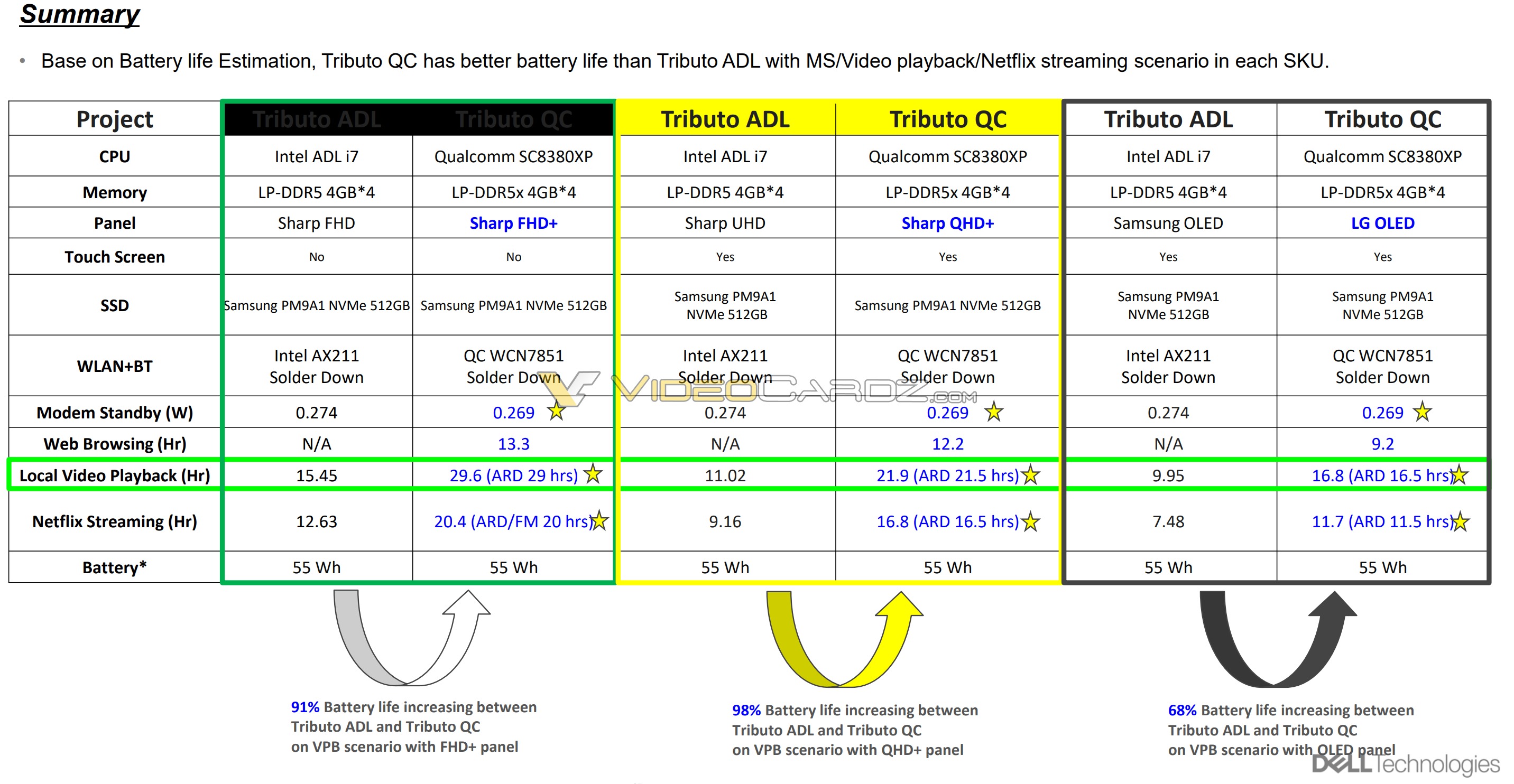
But even though Intel laptops generally have less longevity than other processor types, it doesn't change that what Qualcomm could offer in this case is at a whole new level.
We could see drastically different results because video playback is a whole other beast than what Laptop Mag's internal battery life tests look like. Dell's leaked XPS sheet does feature a section for web browsing, with the FHD+ panel hitting 13 hours, the QHD+ panel hitting 12 hours, and the OLED panel hitting 9 hours, but it's unlikely that these are performed the same way as ours. And even then, Intel numbers are not available for comparison.
Suppose we do get similar findings in our battery life tests. In that case, 9 hours of battery life during web browsing on an OLED model isn't particularly impressive. 13 hours on the FHD+ model is still good, but tests will reveal if it's worth competing with Apple.
The Apple MacBook Pro M3 16-inch and MacBook Pro 14 M3 currently have the best battery life of any modern laptops that Laptop Mag has tested at 18 hours and 5 minutes and 17 hours and 16 minutes, respectively. Our longest-lasting Intel laptop is the Asus Zenbook 14 OLED, which comes in at 15 hours and 52 minutes and utilizes an Intel Core Ultra 7 155H.
For Qualcomm Snapdragon X to make a significant splash, we need to run our battery life tests directly on a Dell XPS 13 built with it and see if it can withstand M3 MacBooks and Intel Core Ultra laptops. Until then, it's best not to stake too much on these leaks.

Self-described art critic and unabashedly pretentious, Claire finds joy in impassioned ramblings about her closeness to video games. She has a bachelor’s degree in Journalism & Media Studies from Brooklyn College and five years of experience in entertainment journalism. Claire is a stalwart defender of the importance found in subjectivity and spends most days overwhelmed with excitement for the past, present and future of gaming. When she isn't writing or playing Dark Souls, she can be found eating chicken fettuccine alfredo and watching anime.



